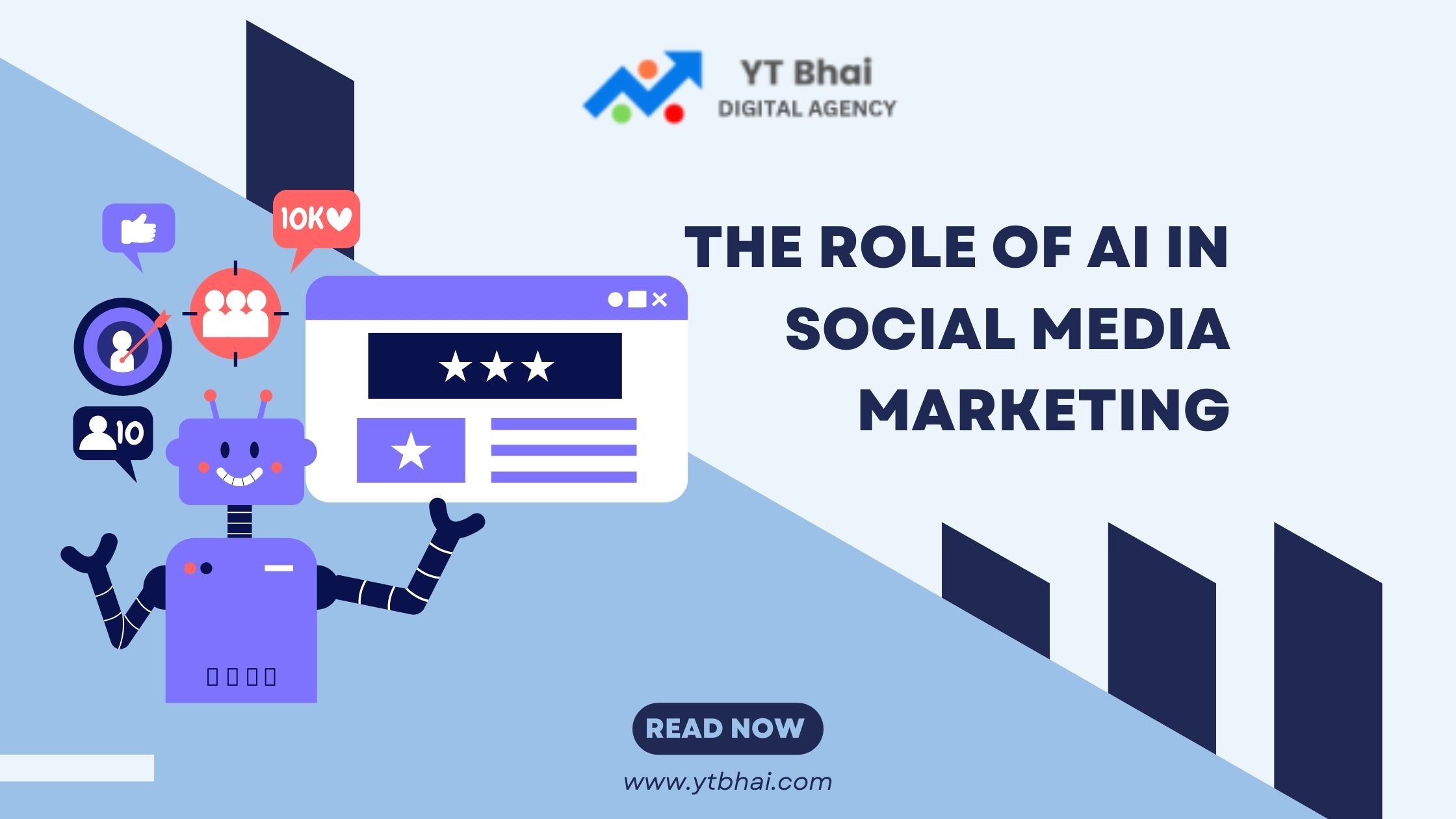
Artificial Intelligence (AI) is revolutionizing the landscape of social media marketing. From automating routine tasks to analyzing vast amounts of data, AI helps brands connect with audiences more effectively. In this blog, we’ll explore how AI in social media marketing, the benefits it offers, and actionable strategies to leverage AI for your campaigns.AI in social media marketing refers to the use of machine learning, natural language processing (NLP), and predictive analytics to enhance social media strategies. AI tools can analyze user behavior, generate content, and deliver insights for making data-driven decisions.
Benefits of Using AI in Social Media Marketing
- Enhanced Efficiency: Automates repetitive tasks like scheduling posts and responding to common queries.
- Improved Personalization: Delivers tailored content to users based on their preferences and behavior.
- Data-Driven Insights: Offers detailed analytics to track and optimize campaign performance.
- Cost Reduction: Saves resources by automating processes and optimizing ad spends.
- Better Customer Engagement: Ensures prompt responses and customized interactions.
AI Applications in Social Media Marketing
1. Content Creation
AI-powered tools like ChatGPT and Jasper can create engaging captions, blogs, and even images. They use natural language processing to produce human-like content.
2. Audience Insights
AI tools analyze user behavior and segment audiences based on demographics, interests, and activity. These insights help brands create more targeted campaigns.
3. Chatbots and Customer Service
AI-driven chatbots on platforms like Facebook Messenger and WhatsApp provide 24/7 customer support, reducing response time and improving user satisfaction.
4. Ad Targeting and Optimization
AI algorithms analyze user data to optimize ad targeting, ensuring ads reach the most relevant audiences. Real-time adjustments improve ROI significantly.
Case Studies: Successful AI Integration in Social Media
Case Study 1: Netflix
Netflix leverages AI to analyze user preferences and recommend personalized content. This strategy has been instrumental in increasing viewer engagement on social media platforms.
Case Study 2: Starbucks
Starbucks uses AI chatbots to take orders and provide updates on social media. This has enhanced the customer experience and streamlined order processing.
Challenges of AI in Social Media Marketing
- Data Privacy Concerns: Collecting and analyzing user data may raise privacy issues.
- Dependence on Technology: Over-reliance on AI can reduce human creativity.
- High Initial Costs: Implementing AI solutions requires significant investment.
- Accuracy Issues: Misinterpreted data can lead to ineffective campaigns.
Future Trends of AI in Social Media Marketing
- Voice Search Optimization: AI tools will integrate voice search capabilities for better user experience.
- Visual Recognition: Enhanced algorithms will allow for advanced image and video analysis.
- Hyper-Personalization: AI will provide ultra-targeted content based on real-time user behavior.
- Predictive Analytics: Brands will use AI to predict trends and customer needs before they arise.
Conclusion
AI is undoubtedly transforming social media marketing, offering efficiency, precision, and enhanced customer engagement. While challenges like privacy and cost exist, the benefits far outweigh the drawbacks. By adopting AI, brands can stay ahead in the competitive social media landscape.
FAQs
- What is AI in social media marketing?
AI in social media marketing refers to using machine learning and data analysis tools to enhance marketing strategies on social platforms. - How does AI improve social media advertising?
AI optimizes ad targeting and delivery by analyzing user data, leading to better ROI. - What are examples of AI tools for social media?
Examples include Hootsuite, ChatGPT, Jasper, and Sprout Social. - Are there risks in using AI for social media?
Yes, potential risks include data privacy issues and over-reliance on technology. - What’s the future of AI in social media marketing?
The future includes hyper-personalization, advanced visual recognition, and predictive analytics.
